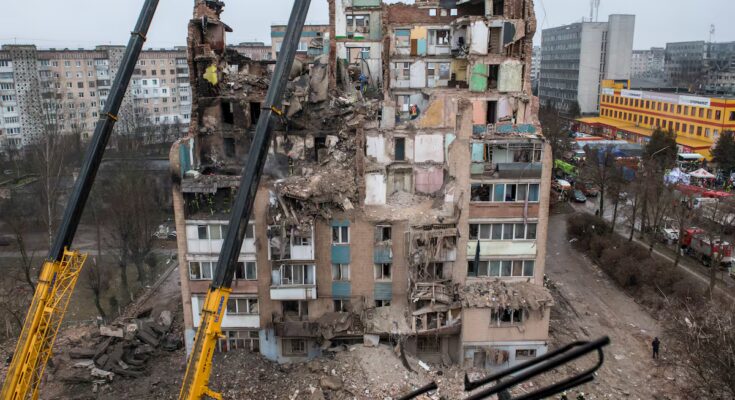The so-called peace plan for Ukraine presented yesterday to the Kiev government by the American administration – despite its dubious feasibility and its unequivocal injustice – has an original flaw that is impossible to ignore: it was carried out behind the backs of both the country invaded by Russia more than three years ago, and the European community of nations, which during this period politically, economically and socially supported the Ukrainian effort to contain the aggression of its almighty neighbor.
That the proposal was received with total disappointment in Kiev cannot be a surprise. The 28-point plan recognizes Russia’s right of conquest, establishes vague guarantees against the Kremlin’s future expansionist intentions – a major concern of Ukrainians – and establishes an unprecedented economic advantage for the United States. Volodymyr Zelenskyj’s caution towards the proposal is understandable from the point of view of a country desperately fighting for its survival in the face of a nuclear superpower, but it in no way legitimizes a text that Trump also accompanies with an intolerable ultimatum: he gives a week to respond.
Nothing can be expected from Putin, but Trump’s advisors should remind the American president that, with great effort, Europe has provided material for the defense of Ukraine from the first moment, that its governments have suffered great wear and tear as a result, and that the European population has also shouldered the consequences of sanctions against Moscow with the sole aim of preventing Russia from annexing Ukraine, in whole or in part, and endangering all Western security. And that this defense also includes that of American interests.
However, Trump’s contempt for Europe pales in comparison to the contempt with which he treats Ukraine. For three years – more than a decade if we go back to the annexation of Crimea – the Ukrainian population has been subjected to permanent war punishments that include human rights violations. Every week civilians die in indiscriminate bombings and thousands of minors are kidnapped or separated from their families, Russian troops have been accused of war crimes practically since the beginning of the war – the Bucha massacre is an example – and the Kremlin has endangered the security of the continent with actions against nuclear power plants such as Chernobyl or Zaporizhzhia.
And now Trump presents a proposal that sanctions the partition of Ukraine – forced to renounce sovereignty over Donbas and Crimea -, the interference in its internal politics – it must hold elections within 100 days – and the mortgage on its future: it must reduce its army and introduce into the Constitution the explicit renunciation of joining NATO. Furthermore, it makes Europe pay an exorbitant sum – $100 billion – to rebuild the country, while Washington benefits economically from that reconstruction and from investments resulting from the use of frozen Russian assets.
The EU has already responded that it considers any peace plan that does not include Ukraine and Europe unacceptable. It is up to the Union – and other allies, such as the United Kingdom and Canada – to activate all its diplomatic resources so that Washington comes to its senses and, above all, so that Ukraine feels, once again, supported in the negotiations on its future.



